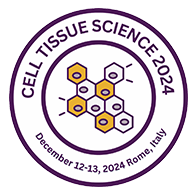Vitrification
Although most living organisms are composed of enormous amounts of water, it's not inevitable that freezing these organisms ends up in ice-formation. Among amphibians and insects that may tolerate freezing, there's wide variation in the quantity of freezing they'll tolerate. Species of frogs will spend days or weeks "with as much as 65 percent of their total body water as ice". Some amphibians attain their protection due to the glycerol produced by their livers. Glycerol is "antifreeze", it reduces ice formation and lowers freezing point. The sugar glucose is also cryoprotectants. Arctic frogs have a special type of insulin that accelerates glucose release and absorption into cells as temperatures approach freezing point. Cryoprotectants can be used to make water harden like glass with no crystal formation this is a process known as Vitrification. Freezing damage to cells is due to the formation of ice-crystals. Entire organs could also be solidified and kept at temperatures as low as -140°c. Scientists are working on ways in which reduce the toxicity of the cryoprotectants used to make water vitrify to allow banking of organs for transplantation. We tend to are optimistic that the toxicity that also can occur with vitrification of human organs that are going to be reversible with future molecular repair technology.
- Cryopreservation
- Simplified Manufacturing process
- Short term and Long term Tissue Preservation
- Biological effects of freezing and supercooling
- Vitrification versus slow freezing
Related Conference of Vitrification
21th World Congress on Tissue Engineering Regenerative Medicine and Stem Cell Research
16th International Conference on Human Genetics and Genetic Diseases
19th International Conference on Genomics & Pharmacogenomics
Vitrification Conference Speakers
Recommended Sessions
- Cell Therapy
- Anti-Aging and Regenerative Medicine
- Biobanking
- Biological Tissue Substitutes
- Biomaterials and Bioengineering
- Bone and Cartilage Tissue Engineering
- Cancer Cell Biology
- Cell & Organ Regeneration
- Cell Engineering
- Dental Stem Cells and Tooth Regeneration
- Epigenome and Epigenetic Analysis
- Future of Cancer Care
- Gene Therapy
- Immunology
- Novel Approaches in Guided Tissue Regeneration
- Organ Engineering
- Personalized Medicine
- Stem cells
- Tissue Culture & Preservation
- Tissue Engineering
- Tissue Repair And Regeneration
- Translational Medicine
- Vitrification
Related Journals
Are you interested in
- 3D Bioprinting, Organ Fabrication & Bioartificial Tissues - Stem Cell 2026 (Netherlands)
- Aging Biology, Longevity Science & Cellular Rejuvenation - Stem Cell 2026 (Netherlands)
- Artificial Intelligence and Computational Biology in Regenerative Medicine - Stemgen 2026 (Japan)
- Bioinformatics, AI Models & Predictive Regeneration - Stem Cell 2026 (Netherlands)
- Biomaterials and Nanotechnology in Regenerative Medicine - Stemgen 2026 (Japan)
- Cancer Stem Cells & Targeted Therapeutics - Stem Cell 2026 (Netherlands)
- Cancer Stem Cells and Oncology - Stemgen 2026 (Japan)
- Cardiac, Vascular & Musculoskeletal Regeneration - Stem Cell 2026 (Netherlands)
- Cardiovascular Regeneration - Stemgen 2026 (Japan)
- Clinical Translation of Stem Cell Therapies - Stem Cell 2026 (Netherlands)
- Clinical Trials and Translational Stem Cell Research - Stemgen 2026 (Japan)
- Commercialization, Biobanking & Industry Innovations - Stem Cell 2026 (Netherlands)
- Ethical, Legal, and Social Implications in Stem Cell Research - Stemgen 2026 (Japan)
- Ethical, Regulatory & Quality Control Frameworks - Stem Cell 2026 (Netherlands)
- Exosomes, Extracellular Vesicles & Cell-Free Therapeutics - Stem Cell 2026 (Netherlands)
- Future Trends: Organoids, Bioengineering, and Next-Generation Therapies - Stemgen 2026 (Japan)
- Gene Editing and CRISPR Technologies - Stemgen 2026 (Japan)
- Gene Editing, CRISPR Therapies & Regenerative Genomics - Stem Cell 2026 (Netherlands)
- Induced Pluripotent Stem Cells (iPSCs) and Reprogramming - Stemgen 2026 (Japan)
- Mesenchymal Stem Cells (MSCs) in Therapy - Stemgen 2026 (Japan)
- Regeneration in Neurodegenerative & Spinal Cord Disorders - Stem Cell 2026 (Netherlands)
- Regenerative Approaches in Diabetes & Metabolic Disorders - Stem Cell 2026 (Netherlands)
- Regenerative Dentistry and Craniofacial Applications - Stemgen 2026 (Japan)
- Regenerative Immunology & Immune Modulation - Stem Cell 2026 (Netherlands)
- Regenerative Medicine and Tissue Engineering - Stemgen 2026 (Japan)
- Stem Cell Banking and Cryopreservation - Stemgen 2026 (Japan)
- Stem Cell Biology and Cellular Mechanisms - Stemgen 2026 (Japan)
- Stem Cell Engineering & Cellular Reprogramming - Stem Cell 2026 (Netherlands)
- Stem Cells in Neurological and Neurodegenerative Disorders - Stemgen 2026 (Japan)
- Tissue Engineering, Biomaterials & Smart Scaffolds - Stem Cell 2026 (Netherlands)

